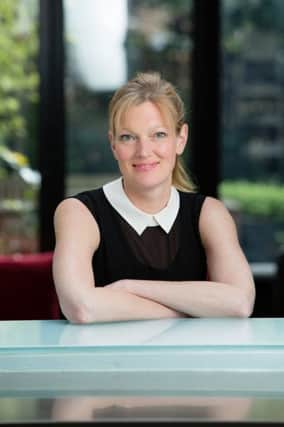Money-savvy mums remain confused by the investment industry


Boring Money, the independent consumer saving and investment information site that commissioned the research, says the findings show that while mums are highly adept at managing family finances, they are the ‘missing link’ for the investments industry, which is failing to connect with a potentially powerful audience.
The research, conducted this week, specifically targeted over 1,000 parents of children aged 18 and under.
Advertisement
Hide AdAdvertisement
Hide AdIt showed that only 14 per cent of mums have personal loans, compared with one in five dads, and just over half of mums (54 per cent) have credit cards, compared with nearly two thirds (65 per cent) of dads.
Figures on ownership of life insurance were similar – 33 per cent for mums, 36 per cent for dads – as were figures for savings accounts, but incredibly, three in four mums (74 per cent) have current accounts, compared with just two in three dads (67 per cent).
Despite 81 per cent of mums saying they were very involved in making decisions about their family’s finances, the data indicating engagement was radically different when respondents were asked about investments.
Just 9 per cent of mums feel comfortable dealing with the stock market compared with 27 per cent of dads. More than one in five dads held stocks and shares (21 per cent), compared with less than one in 12 mums (8 per cent).
Advertisement
Hide AdAdvertisement
Hide AdHolly Mackay, managing director of Boring Money and herself a mum of two, said: “This research should be a real wake-up call to the investments industry – which remains steeped in ‘blokey’ imagery and communications and often appears to forget that its end customer may be a very money-savvy mum, not the stereotypical chap down the golf club.
“Mothers are, as we’d suspect, deeply involved in managing their family’s finances but remain alienated by the investment piece of the puzzle.”
The research found that 70 per cent of mums feel comfortable dealing with their family’s cash and savings, but these comfort levels tail off sharply when looking at other areas.
For example, women remain less likely to invest than men. Aggregated data from five of the UK’s major investment platforms shows the ratio of male to female investors is still a disproportionate 64:36.
Advertisement
Hide AdAdvertisement
Hide AdAccording to investment platforms, financial advisers and ‘Robo Advice’ services, women are also more likely to pick less volatile, or ‘risky’ investments. Across all age groups and demographics, men are typically at least twice as likely women to hold a stocks and shares ISA.
The caution displayed across the board becomes arguably even more pronounced for mothers. Although women remain the decision-makers about Junior ISAs, more likely to arrange these accounts than men, their ‘reckless’ caution is steering them towards cash for this often longer-term savings product.
Boring Money said that this lack of engagement can be attributed largely to confidence levels and the extremely low levels of comfort felt about the stockmarket by women in general, and mothers in particular, as the pivotal decision-makers about a family’s finances in most other regards.
Ms Mackay said: “Mothers are a savvy and engaged bunch with personal finance as a rule, although this dilutes when it comes to investment and pensions, suggesting we’re failing to engage at this last and most complex hurdle.
Advertisement
Hide AdAdvertisement
Hide Ad“It’s time the industry got a little more clever about segmentation, rather than chucking all customers into the same pot, or – more commonly – refusing to change the ‘product-flog’ story to a life stage, or needs related story. There’s an army of financially-savvy mums out there and very few people are talking to them about the stock market in a way which engages or feels relevant.
Mackay continues: “When we are talking to people about saving for at least a 10-year period, we have to find a way to get them to at least consider a more efficient vehicle than a cash product with near zero interest rates.”